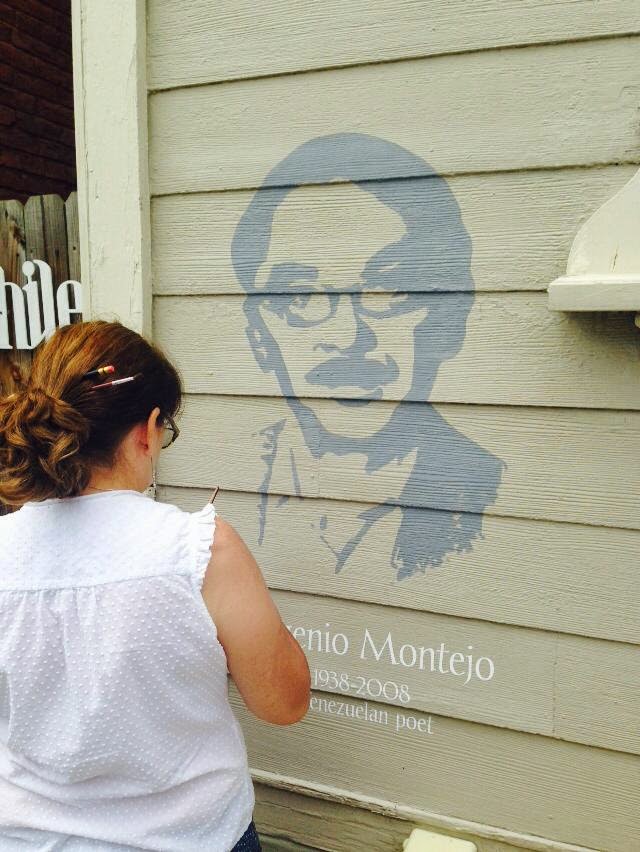Vienes de la noche, desde el medio del sueño, dices ser el pez girasol que emerge mostrando una cola de arena, la punta de la aleta, que también es un pétalo, que también es una hoja.
Vienes desde el otro extremo del cuarto, que en la madrugada es un espacio infinito, un desierto como nunca, la desolación completa, la resolana de los párpados cerrados, las sábanas superpuestas que son puertas sólidas cerradas a la otra realidad, la que viene del sueño, girando en miles de imágenes superpuestas, mientras dices ser el pez girasol que está enterrado en la arena del jardín, entre la tierra revuelta que espera semillas, humedecida para que estalle en un espinar de hojas.
Ya no importa lo que estuvo escondido detrás de esas puertas de la memoria, ya no existe. Si las abres por fin, no habrá nada oculto, así que nada podrá herirte.
Y mañana cuando amanezca rezaremos a las olas del patio, a las que pasan por encima de nuestras cabezas, muy arriba, arriadas por el viento, las que se van nadando volteadas al revés, te veré esconderte nadando, huir entre las nubes, pez girasol, hasta la resolana, hasta los ojos cerrados, hasta nunca jamás.
Vienes desde el otro extremo del cuarto, que en la madrugada es un espacio infinito, un desierto como nunca, la desolación completa, la resolana de los párpados cerrados, las sábanas superpuestas que son puertas sólidas cerradas a la otra realidad, la que viene del sueño, girando en miles de imágenes superpuestas, mientras dices ser el pez girasol que está enterrado en la arena del jardín, entre la tierra revuelta que espera semillas, humedecida para que estalle en un espinar de hojas.
Ya no importa lo que estuvo escondido detrás de esas puertas de la memoria, ya no existe. Si las abres por fin, no habrá nada oculto, así que nada podrá herirte.
Y mañana cuando amanezca rezaremos a las olas del patio, a las que pasan por encima de nuestras cabezas, muy arriba, arriadas por el viento, las que se van nadando volteadas al revés, te veré esconderte nadando, huir entre las nubes, pez girasol, hasta la resolana, hasta los ojos cerrados, hasta nunca jamás.
SUNFLOWER FISH
You
come from the night, in the middle of sleep, you say you’re a sunflower fish
that emerges displaying a tail of sand, the tip of the fin, which is also a
petal, which is also a leaf.
You come from the other side of the room, which at dawn is an infinite space, a desert like you’ve never seen before, complete desolation, the glare of closed eyelids, the sheets are superimposed solid doors closed to that other reality, the one that comes from sleep, turning in thousands of superimposed images, while you say you’re the sunflower fish buried in the sand in the back yard, amid the tilled dirt waiting for seeds, dampened so it’ll explode in a thicket of leaves.
It
doesn’t matter anymore what was hidden behind those doors of memory, it doesn’t
exist. If you finally open them, there’ll be nothing hidden, so nothing will be
able to hurt you.
And tomorrow when the sun rises we’ll pray the waves in the patio, to the ones that pass over our heads, very high up there, lowered by the wind, the ones swimming backwards, fleeing through the clouds, sunflower fish, until the glare of the sun, until eyes closed, until never again.
Trad. Guillermo Parra
www.venepoetics.blogspot.com

.JPG)

